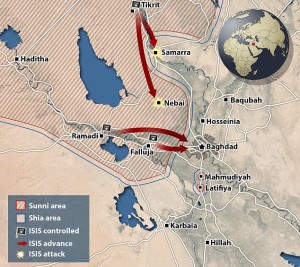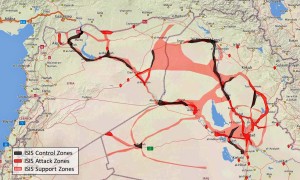From time to time I am invited to give public presentations on subjects within my areas of interest. Depending on the topic I sometimes offer ideas for the audience to consider. At a think tank gathering last year I offered the suggestion that parliament should consider the proposition that New Zealand be the first country to publicly and formally renounce the use of lethal drones at home and abroad. I pointed out that although security conservatives and military commanders would oppose the move because it limited NZDF (and perhaps in the future NZ Police) tactical options, it was worth debating on moral and legal as well as practical grounds given New Zealand’s unique political culture and international standing. Since 90 percent of what military drones do is non-lethal and the NZDF does not have a lethal drone capability as of yet, it seems worth a try.
That proposition went nowhere. Some left leaning commentators supported the motion (most notably No Right Turn and one of the authors at The Standard). But no a single political party, to include the Greens, Mana and the Internet Party, adopted it as a policy proposition and it was never brought up in parliament.
This year I was at another event that featured academicians, students, policy practitioners, journalists and diplomats (foreign and Kiwi) discussing New Zealand’s past, present and future foreign policy. I was matched with a representative of the New Zealand intelligence community and a security academic on a panel that addressed intelligence issues, specifically, New Zealand’s intelligence role in foreign policy.
As part of the discussion I suggested that Edward Snowden had done us a favour by exposing the extent to which NZ is a fully integrated member of the 5 Eyes signals intelligence network. The reason is that with the revelations that have come from the documents that he passed on to journalists, New Zealand has an opportunity to re-negotiate some of the terms of its participation in 5 Eyes. I noted that withdrawal from 5 Eyes was not an option–I said that it was like trying to leave the mafia. But the specific terms of what the GCSB does for 5 Eyes could be discussed given that New Zealand is by far the most vulnerable of the 5 Eyes partners to retaliation from the countries that it targets as part of the division of labour within Echelon. I specifically  mentioned that NZ might broach the subject of reducing its role in spying on China given how trade dependent NZ is on the Asian giant.
A couple of journalists in the room ran stories on the suggestion and the PM was asked about it at his weekly press conference. He rejected it out of hand and said that NZ would not modify its intelligence operations because of trade considerations because what it did in was in the national interest.
The Snowden documents suggest otherwise, but that argument can be left for another moment.
Let me explain why NZ has an opportunity to re-negotiate the terms of its agreement with the Anglophone powers even though it cannot withdraw from 5 Eyes entirely.
If NZ were to withdraw from 5 Eyes it would lose the substantial benefits, unique to a small country, that it accrues from being in an alliance with four bigger partners with global reach. The flow of intelligence within 5 Eyes is very much reciprocal but what NZ receives is far more than what it delivers to the network. It is tasked with using shared technological means located on or operated from NZ soil (including its diplomatic missions) to target  specific entities of common interest to the larger partners, and in exchange it receives global as well as more NZ-specific intelligence from those partners.
That is just one reason why withdrawal is unlikely. But think of the consequences if NZ unilaterally decided to opt out of Echelon. It is in possession of some of the most advanced signals interception technologies on the planet. The GCSB knows the processes, procedures, means, methods and protocols of the entire network. Fear that this knowledge and technologies (say, for example, X-Keyscore and Prism) could fall into hostile hands will inevitably prompt a negative response from NZ’s erstwhile intelligence allies, and that response will not be confined to the field of intelligence (I am aware of reports that some of the technologies and methods mentioned in the Snowden documents have been decrypted by Russian and Chinese intelligence but am not sure as to what extent this may have occurred).
Were NZ to try and establish an alternative signals intelligence network with other powers, the remaining 5 Eyes countries would likely move beyond defensive measures and into the field of offensive intelligence operations against NZ. In other words, the exit costs will be too high given the uncertain benefits received in the event of withdrawal.
That being said, the GCSB is integral to 5 Eyes operations. The partners cannot afford to alienate NZ on issues that are critical to NZ but marginal or less costly to them. Although they never thought that their operations would be exposed in the measure that they have, the 5 Eyes partners are now acutely aware, thanks to Snowden, that they rise and fall together when it comes to exposing how they go about signals intelligence acquisition and who they target. They can therefore ill afford to call NZ’s bluff on a matter that is of critical importance to the latter.
I would argue that bilateral trade with China is one such matter. Even if they have a pretty good idea of what the GCSB does for Echelon, public revelation of NZ having a lead role in spying on the Chinese at home and abroad will force the PRC to retaliate in some fashion, even if just to save face as an emerging great power with super power pretensions. It must show that it should not be disrespected and meddled in by small states no matter who those states are allied with. The means by which it can reach out and touch NZ in a bad way are myriad and not confined to diplomatic or economic relations.
The only reason that it would not do so is if it has counter-intelligence access to GCSB operations and wants to keep those “backdoor” channels open in spite of the publication of specifics about NZ espionage against it.
If NZ were to say to its partners that given its vulnerability to Chinese utu the GCSB would prefer not to take a major role in spying on the PRC, it is possible that the other partners will listen and consider the request. The GCSB can still spy on South Pacific, Latin American and other nations that do not have much leverage over it, as well as the UN, various NGOs and private firms as it is doing now. But it would give a pass to spying, at least in a major way outside of NZ territory, on the Chinese.
In my view, such a position would not prevent the GCSB (and SIS) from conducting counter-intelligence operations against Chinese espionage at home and abroad. Even if they know about these defensive measures the Chinese will likely not make an issue of them given that they instigated the back and forth. Where I would draw the line is on offensive operations against Chinese targets, especially when at the behest of the larger partners.
I am not surprised that John Key has no interest in this proposition. To do so requires political courage and a commitment to putting NZ national interests first. Neither is in his repertoire. Plus, even if he were to think about the dilemma posed by NZ’s increasingly counter-poised trade and security interests, any renegotiation along the lines I have posed would be done quietly and not publicly announced, much less at a press Q&A. But I doubt the latter is the case.
In any event, this is a potential moment of opportunity to redefine the terms and conditions of NZ’s involvement in 5 Eyes, however implausible that may seem at first glance. There is a supposed review of the NZ intelligence community now underway that could serve as a sounding board for opinions on the suggestion, and I am happy to add my two cents to the discussion should that be deemed worthwhile.


